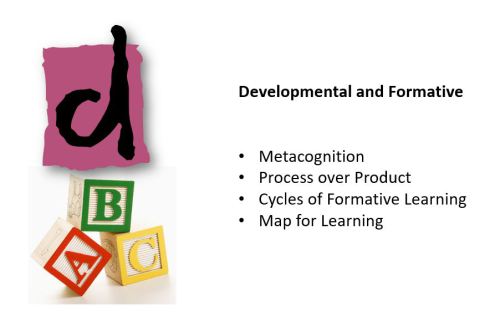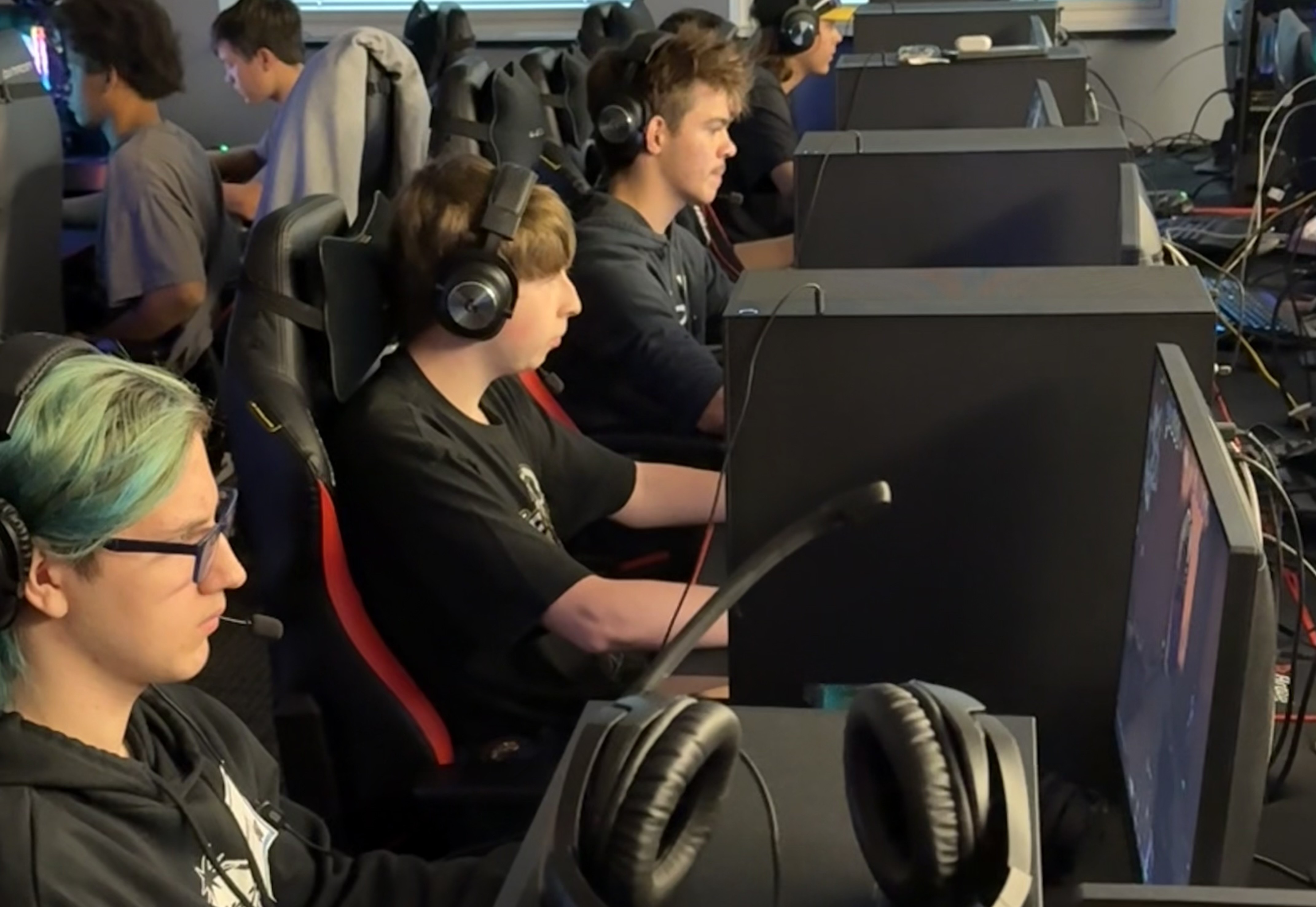D is for Developmental and Formative: The ABC’s of PBL- Building Blocks to Transform Learning

Welcome to the fourth post in a series that promotes PBL and 21st Century Learning through the examination of Seven Building Blocks. In this fourth post, I would like to examine how education must be both developmentally appropriate fir students while providing formative learning experiences and assessments. These two concepts allow the education experience to proceed in a powerful and natual progression that is neccessary if true learning is to take place. Before reading, please take a moment to subscribe by email or RSS, and also give me a follow… on Twitter at mjgormans. I promise you will find some wonderful information coming your way in the posts that follow…So sign up now and please pass this on with a retweet. Also, remember you can book me for a conference or your school district with workshops that are informative, engaging, and practical. Check out my Booking Page and as always… thanks so much! I am taking dates for 2018 with 2017 now full… start thinking of next spring, summer, and autumn…. Mike Gorman (https://21centuryedtech.wordpress.com/)
D is for Developmental and Formative: The ABC’s of PBL … Building Blocks to Transform Learning… by Michael Gorman at https://21centuryedtech.wordpress.com/
Project Based Learning is so much more then covering content though lecture and reading followed by doing a project to show what one has learned. The project is the vehicle and journey that allows the students to get to a final destination with new learning as a reward. That final destination is a project that has been built along a highway filled with on and off ramps allowing for experiences filled with individual and collaborative investigation, research, experimentation, inquiry, metacognition, and authentic learning, These ramps have been built intentionally by the teachers to provide that important metacognition, process, cycles, and map that will allow the project to be so much more than a noun, but also a verb built on action and process. John Dewey probably said it best in the following statement.
“Give the pupils something to do, not something to learn; and the doing is of such a nature as to demand thinking; learning naturally results.”
Let’s take a look at the following ideas that re prt of this developmwntal and formative process. Be sure to also enjoy the provided resources. They will allow you to really dig deeper into the process.
1. Metacognition (Thinking about Thinking)
2. Emphasis on Process over Product (Doing)
3. Cycles of Formative Learning (Iterative Learning Process)
4. Map for Learning
Metacognition (Thinking about Thinking) – Often two terms metacognition and thinking are used together to demonstrate the need for students to be aware and reflective in their learning. It allows for a deeper learning by asking students to think, critique, and apply learning. So many times, in a rush to get to the next content objective, education fails to allow students to focus on their learning. In PBL this happens at the entry event, through out cycle of lerning, and at toward the close of the project. Perhaps one of the most important post reflections might be… what can I now do with my learning? It is important that students have that opportunity to think about thinking.
Emphasis on Process over Product (Doing) – PBL emphasizes the importance of the journey and not so much the destination. While the final product can be a wonderful and exciting occurrence, the journey is filled with important contents standards, skills, experiences, and intellectual growth. As John Dewey reminds educators, it really is the doing. There is an emphasis on the verbs found in the standards highlighting Bloom’s higher orders of process. It not just what one learned in school today… it is what one did!
Cycles of Formative Learning – Note that this indicator is a reminder, stating the importance of reflecting on the concept of formative learning. It is through a process of formative assessment that a teacher guides and activates student learning in a formative manner. As a student goes through setbacks and successes there is a growth, much like arriving at the next level of a video game. Students learn to produce quality products by working through cycles of teacher, peer, and self-critique. This cycle of learning turns into a flow while promoting and facilitating perseverance. It is at this point that formative assessment really becomes fomative learning with the individual learner perhaps being the best judge. Students conquer higher level content, while building on skills that will serve them in future schooling and the job place.
Map for Learning – By looking at unpacked standards and student learning targets, educators design lessons and activities that allow learning to take place throughout a project. This may include using past lessons teachers may have always had, along with new lessons that might incorporate 21st century skills and digital technology. These activities are then placed in an intentional order along a unit timeline, culminating in a final product. The activities and opportunities are differentiated, providing an opportunity for all learnerning styles. Students can even provide input to this map or scaffold. This map allows the project to be so much more than a destination, it allows it to be a learning process.
Reflection
As one can see Project Based Learning is very intentional. The teacher truly is a designer, facilitator, and activator. There is a constant formative process allowing for student progress through metacognition, iterative cycles, and learning experiences. It is an exciting journey for both teachers and students, one where each side trip adds to the entire process. The destination is bound to be filled with a celebration of learning and new possibilities!
Tools and ideas to transform education. Sign up below.
Resources For Developmental and Formative
- Students Reflect On a 21century Competency Rubric – Be sure to visit the BUCK Institute (BIE) and check out their rubrics. The link will take you there. Have students reflect on one portion of the rubric. It can be an exit ticket or a journal exercise.
- GoFormative – A great digital tool to get real time feedback in a multitude of ways on any device. Very easy to use.
- Habits of the Mind Institute – Take a moment to become familiar with these important “Habits of the Mind” concepts that will encourage the important thinking and metacognition to support “genuine learning”.
- BIE Student Learning Guide – Take a look at this amazing map for learning at the BUCK instutute. Be sure to check out the examples and download the form to create your own PBL map or scaffold.
- Going Beyond Group Assessment for Learning – This could hacve been an assessment resource but instead I decided to put it with formative and developmental learning. The author, John McCarthy has also written a wonderful book filled with ideas and reflection… So All Can Learn
- Beautiful Work – Check out this free article by Ron Berger, an amazing educators. When finished you just might want to check out his book, An Ethic of Excellence.
- 5E Learning Cycle – Chck out some links to one of my favorite cycles for learning from thses selctions compiled at Wayne RESA.
- Metacognition – Get familiar with the idea along with some great applications from Vanderbilt University.
- Formative Teaching and Learning – Check out this article from the Teaching Channel.
- Activities for Metacognition – You will find some great activities to get your students to think about thinking from the DePaul Teaching Commons.
cross-posted at 21centuryedtech.wordpress.com
Michael Gorman oversees one-to-one laptop programs and digital professional development for Southwest Allen County Schools near Fort Wayne, Indiana. He is a consultant for Discovery Education, ISTE, My Big Campus, and November Learning and is on the National Faculty for The Buck Institute for Education. His awards include district Teacher of the Year, Indiana STEM Educator of the Year and Microsoft’s 365 Global Education Hero. Read more at 21centuryedtech.wordpress.com.
